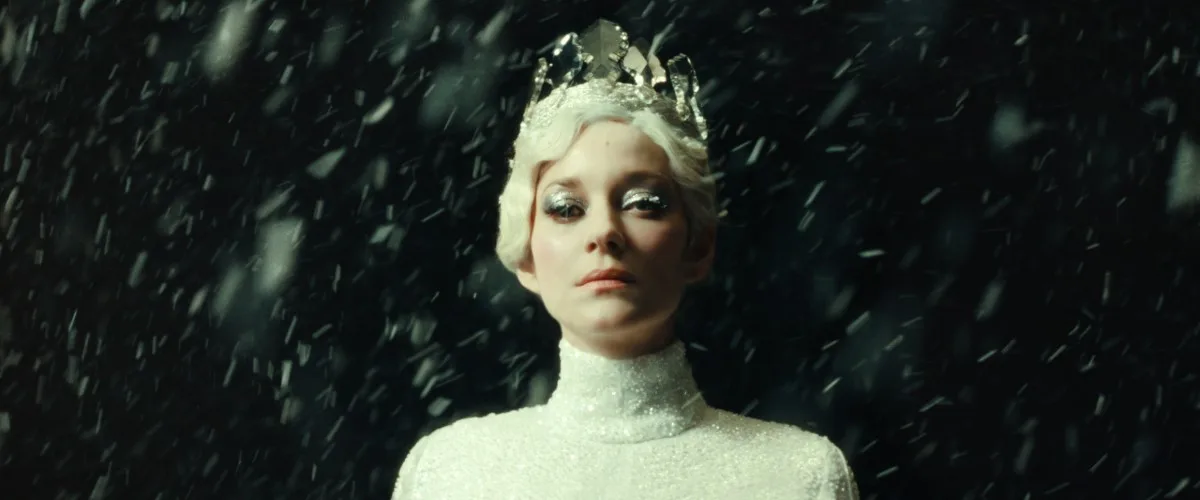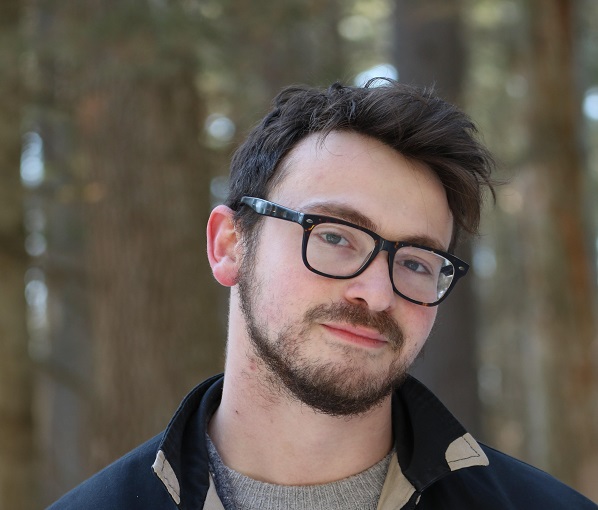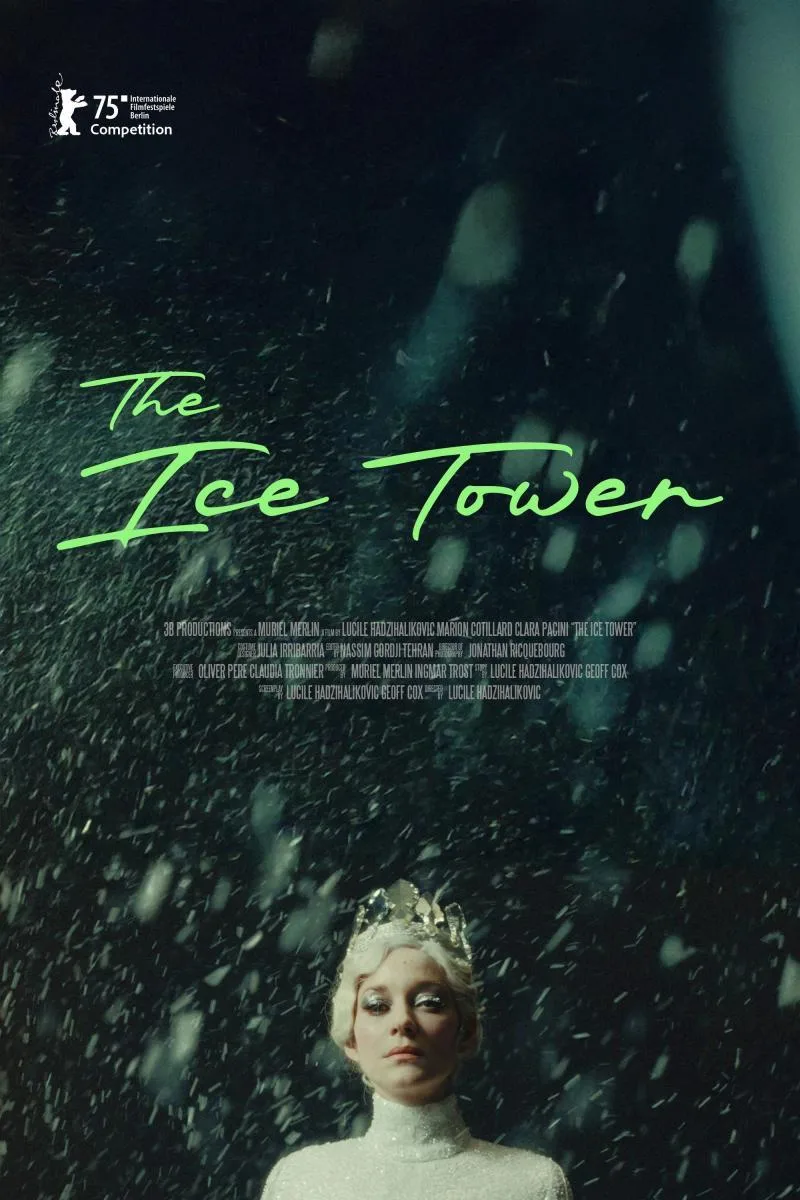Femininity exerts a powerfully unsettling pull in the work of Lucile Hadžihalilović, a French auteur who’s never made a film of such coruscating, crystalline beauty as “The Ice Tower,” a hypnotic meditation on the enchantment that develops between an impressionable teenage runaway and the imperious film actress whose set she stumbles first onto, then into.
Inspired in part by Hans Christian Andersen’s The Snow Queen, this glacially paced yet darkly dazzling fantasy—co-written with Geoff Cox—opens as orphaned Jeanne (Clara Pacini) flees her foster home and staggers through the snow toward a French alpine town. There, she finds shelter in the basement of what turns out to be a film studio mid-production on an adaptation of Andersen’s fairy tale—which, in grief and loneliness following the death of her mother, happens to have already embedded itself deeply in the young girl’s subconscious.
On the set’s gleaming soundstage, Jeanne catches sight of the lead actress, Cristina (Marion Cotillard), and is immediately spellbound by her frigid beauty and power. Having assumed the identity of a teenage girl she’d earlier seen ice-skating at the local rink (to “It’s Five O’Clock” by Aphrodite’s Child, a perfectly entrancing selection in a soundscape otherwise dominated by dreamy electronic textures), Jeanne, now going by Bianca, is already one step removed from reality. And when Cristina takes an interest in her in return and the two become close, with Cristina even seeing to it that Jeanne is cast in a supporting role, nothing of the diva’s cruel and tempestuous demeanor can prevent this little girl lost from starting to idolize Cristina as a figure of maternal, feminine, potentially even romantic obsession.
These two start to reflect one another, especially once Cristina’s own tragic family history comes to light, and that mirroring proves dangerous for them both. When Cristina at one point entreats Jeanne to “disappear” with her into the surrounding wilderness, the besotted young girl mistakes her meaning and moves to send them both over a cliff’s edge. The undercurrent of threat often palpable in the movie star’s troubled gaze upon her young protégée, which turns poisonous and predatory even as Jeanne looks up at her with innocent yearning, is just as concerning. In Hadžihalilović’s telling, the Snow Queen represents not only a cold and unfeeling beauty but something more sinister: the corrupting force of a false idol.
In one key sequence, Jeanne can’t resist stealing a crystal from Cristina’s snow-queen costume; repeatedly, we gaze with her through it, the gem’s diffraction patterns becoming our vantage point, all of its frosted mirrors multiplying into a kaleidoscopic spectacle of winter light (lensed gauzily and gorgeously by cinematographer Jonathan Ricquebourg, on his second collaboration with Hadžihalilović) and leading Jeanne further into delusion. Often alone amid the set’s translucent surfaces, as if in a chamber of reflection, Jeanne finds her infatuation with Cristina uncovers a vast realm of fantasy, one that transfigures her sense of self but also threatens to entrap them both in an endless hall of mirrors.
Drawing parallels between the allusive qualities of the fairy tale, the psychological projection that uneasily binds Jeanne and Cristina, and the metamorphic power of cinema itself, Hadžihalilović evokes Méliès one moment and Cocteau the next. The ghosts of Lynch’s “Mulholland Drive” and Powell and Pressburger’s “Black Narcissus,” too, haunt the edges of the frame.
Hadžihalilović suffuses this story with a languid menace, as if inducing hypnagogic near-slumber and still holding us under, even as the oxygen starts to run thin and what materializes from the ether begins to scare us. It’s a testament to the vividly expressive performance of newcomer Pacini—as well as a master class by Cotillard, whose immortal movie-star allure is charged here with almost vampiric malevolence at points—that “The Ice Tower” sustains its trance-like melodrama across a rigorously slow-burning 118 minutes.
The movie’s French title, “La Tour de glace,” is worth contemplating for how “glace” can be translated not simply as “ice” but also “glass” and “mirror,” all these words evoking a certain refraction of self through the proverbial looking glass. Simultaneously transparent and opaque, Hadžihalilović’s films have long adhered to a liquid dream logic, ethereal atmospheres either flowing freely or freezing solid around characters who struggle to come of age in cloistered, ritualized environments. Rushing water opened and closed “Innocence” (2004), her enigmatic breakthrough feature about an all-girls school whose pupils are taught obedience and purity; “Evolution” (2015) followed this with a story of young boys bred for disturbing purposes linked to maternity on a coastal island whose seas harbor terrible secrets. A surrealist fable about a girl with teeth made of ice, “Earwig” (2021) left its protagonist congealed in a seemingly endless cycle of stunted adolescence, offering no hope of escape from an impossible state of being.
A commonality in these coming-of-age allegories has been Hadžihalilović’s focus on invariably prepubescent protagonists who are doomed to remain suspended, as if in amniotic fluid, unless they can rupture the membrane of that which arrests their development. With this fourth feature, Hadžihalilović has fashioned what might be her most accessible film to date. But in her oneiric film language, she still asks sidelong questions about the surreal process of self-perception. Collapsing the uncanny enchanted realism of her film-within-the-film with Jeanne’s delirium in the face of such artifice, she shows us the dream within the fairy tale. This is not so much a film you watch as one you wake up from, shivering.




















